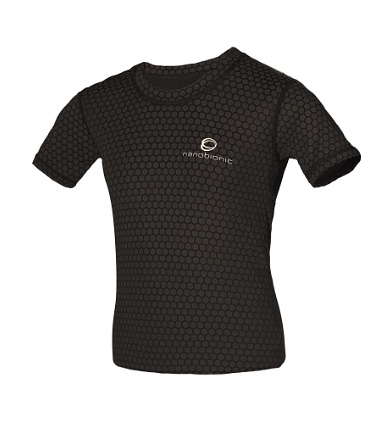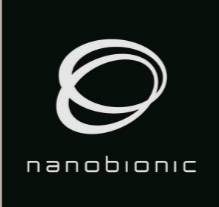Nanobionic Clothing Seen to Help Clear Body of Free Radicals Associated with MS and Other Diseases
Written by |

A recent study in the Journal of Medicinal Chemistry and Toxicology reported that the impact of disease-causing free radicals on the human body may be mitigated by wearing special, high-tech “Nanobionic” clothing for just a few hours a day. These clothes are designed to protect the body from the free radicals it produces, which, when in excess of its natural protective abilities, can result in oxidative stress and lead to cellular damage.
The clothing’s beneficial effects are yet to be fully documented. But in a first study, “Ceramic Textiles from Mineral Oxides Microfibers Coating (Nanobionic) Efficiently Emit Infrared Rays and Reduce Free Radical Levels in Healthy Volunteers and in Patients with Free Radical-Related Disorders,“ investigators provide evidence that Nanobionic clothes have high energy emissions up to 99 percent, demonstrating positive results of emitting infrared rays. Additionally, they demonstrated that mild use of Nanobionic clothing (two hours daily, six days a week) reduced free radical levels in peripheral blood mononuclear cells (PBMCs) in two-thirds of healthy volunteers by an overall range of 9.13 percent to 95.38 percent.
 Recent studies have resulted in the development of “Nanobionic” clothing, made using a newly developed polyurethane textile loaded with mineral oxides (bio-ceramic) and coated on a microfiber that is able to absorb the body’s thermal emissions and transform them into far infrared radiation (FIR). Previous studies have shown that the use of Nanobionic vests yields positive effects on athletic performance.
Recent studies have resulted in the development of “Nanobionic” clothing, made using a newly developed polyurethane textile loaded with mineral oxides (bio-ceramic) and coated on a microfiber that is able to absorb the body’s thermal emissions and transform them into far infrared radiation (FIR). Previous studies have shown that the use of Nanobionic vests yields positive effects on athletic performance.
“Given these findings we have also examined Nanobionic clothing effects on a pathophysiological condition that is linked to oxidative stress and free radicals, namely, Raynauds syndrome which is a rare blood disease. Importantly, we have recorded a significant increase in hands temperature in these patients. In conclusion, this report demonstrates the beneficial effects of Nanobionic vests in reducing free radical levels in healthy individuals as well as in patients suffering from free-radical-related disorders,” the researchers wrote.
Free radicals are associated with numerous conditions, including cardiovascular disease and ischemia, cancer, autoimmune diseases like multiple sclerosis (MS), rheumatoid arthritis, and systemic lupus erythematosus, and a number of neurodegenerative diseases. A wide range of age-related diseases, such as Alzheimer’s, Parkinson’s, dementia and diabetes, are also associated with free radicals.
A 2011 paper published in the journal Biochimica et Biophysica Acta (BBA) – Molecular Basis of Disease, titled “Radical changes in multiple sclerosis pathogenesis,“ noted that free radicals have been implicated in the progression of cancer, cardiovascular disease and neurodegenerative and neuroinflammatory disorders, including MS. The study also emphasized the growing interest in the involvement of reactive oxygen species (ROS, a form of free radicals) in MS pathogenesis, and evidence is emerging that free radicals play a key role in various processes underlying MS pathology.
In this pilot experiment, the researchers had volunteers wear Nanobionic clothes for time periods ranging from two hours a day for six days, to eight hours a day for 30 consecutive days. They measured free radical levels in the peripheral blood mononuclear cells of these individuals, finding that 15 (62.5 percent) had decreased levels (58.7 percent on average) of free radical species after bio-ceramic clothing use, and “optimum data” was achieved in those who wore the clothing for the least specified time.
The report highlighted that FIR has positive molecular effects in diminishing the synthesis of reactive oxygen species, and noted that FIR produced by bio-ceramic coated materials (Nanobionic) has been proven effective in vivo in both healthy volunteers, as well as in pathological situations of decreased local blood circulation, such as Raynaud’s disease. The team observed that there is an emerging body of evidence of positive effects on human health by the usage of FIR.
 The patented “smart clothing” technology has been developed by Nanobionic, founded in 2011 by George and Ermis Psipsikas, and based in New York and Athens, Greece.
The patented “smart clothing” technology has been developed by Nanobionic, founded in 2011 by George and Ermis Psipsikas, and based in New York and Athens, Greece.
The company noted that, while the initial focus for Nanobionic products was in turning thermal energy into far infrared rays in order to stimulate metabolism and micro-circulation, and improve athletic performance, the study suggests that Nanobionic clothing can also be of benefit to a person’s overall health.
“Nanobionic will revolutionize the way people will be wearing clothes in the future. We have developed a breakthrough technology that improves people’s lives in many different ways,” said George and Ermis Psipsikas in a press release, adding that his company has received “12 international innovation awards” and its products are already available in 40 countries. A patent is pending on the clothing line.
The study was conducted by a team of investigators at institutions in Athens and Maroussi, Greece, Örebro University Medical School in Sweden, and the University of Pisa, Italy, and led by corresponding author Efstathios S. Gonos of the National Hellenic Research Foundation, Institute of Biology, Medicinal Chemistry and Biotechnology, Laboratory of Molecular and Cellular Aging in Athens.
For more information on Nanobionic and its clothing products, visit:
https://www.nanobionic.com
and
https://www.nanobionic-group.com
Sources:
Nanobionic
Journal of Medicinal Chemistry and Toxicology
Biochimica et Biophysica Acta (BBA) – Molecular Basis of Disease


